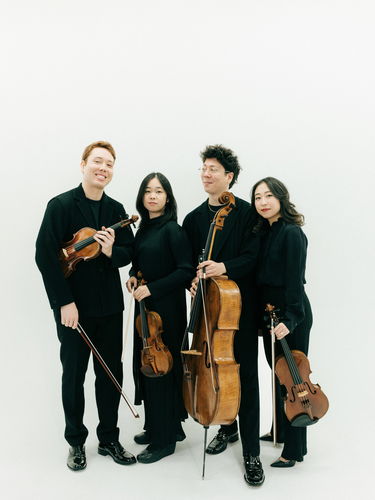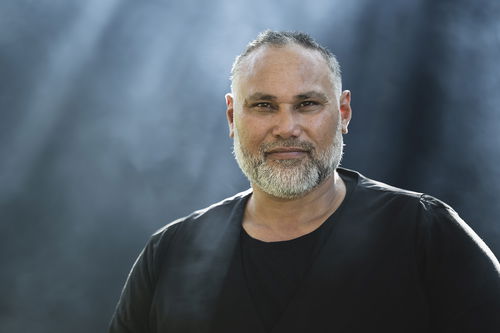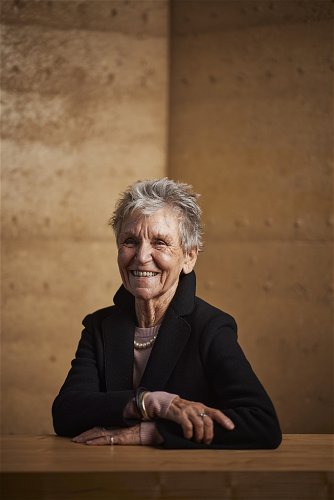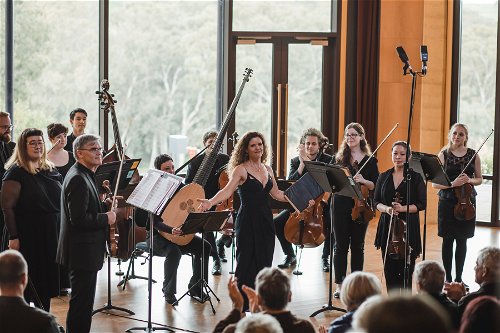
Brooklyn Rider: 'A Vital Twenty-First Century Ensemble'
BY TAHLIA LAMEY
In this interview with Brooklyn Rider’s violist, Nicholas Cords, Tahlia Lamey unpacks the heart behind the ensemble’s artistic practice, their perspective on the string quartet’s evolving place in society, and what they’re most excited to share with us at Chamberfest.
The National Public Radio (NPR) – distinctive for their ‘Tiny Desk Concerts’ – credits Brooklyn Rider with ‘recreating the 300-year-old form of the string quartet as a vital and creative twenty-first-century ensemble’. While grateful for this accolade, Nicholas Cords describes a different side to their collective motivation and inspiration:
‘I think if we had set out to do that explicitly, we might have been crushed from the weight of that directive long ago! I think our motivations are usually moving from the internal to the external. We want to do projects that excite us, inspire us, challenge us. We very much use each other as sounding boards as ideas are generated, and fortunately, there is a good deal of overlap in musical tastes. But even beyond the individual, now twenty years into our history, there is a better understanding of Brooklyn Rider as an entity. So we think both with an individual cap on as well as a group mentality.
Looking back, I think what has guided Brooklyn Rider over the years is a sense of curiosity that moves in a lot of directions. We are curious about the historical string quartet tradition, we are curious about the world, we are curious about collaboration, we are curious about all things new. I think your audience will find that our Chamberfest programs stay true to that balanced sense of curiosity.
And lastly, I would say that as internal as some of the generative process is, we always try to think of our audiences as we do so. Who is our audience, will they feel invited into this experience, what will they walk away with? None of those questions are concretely answerable, but they nevertheless guide and inspire our thinking.’
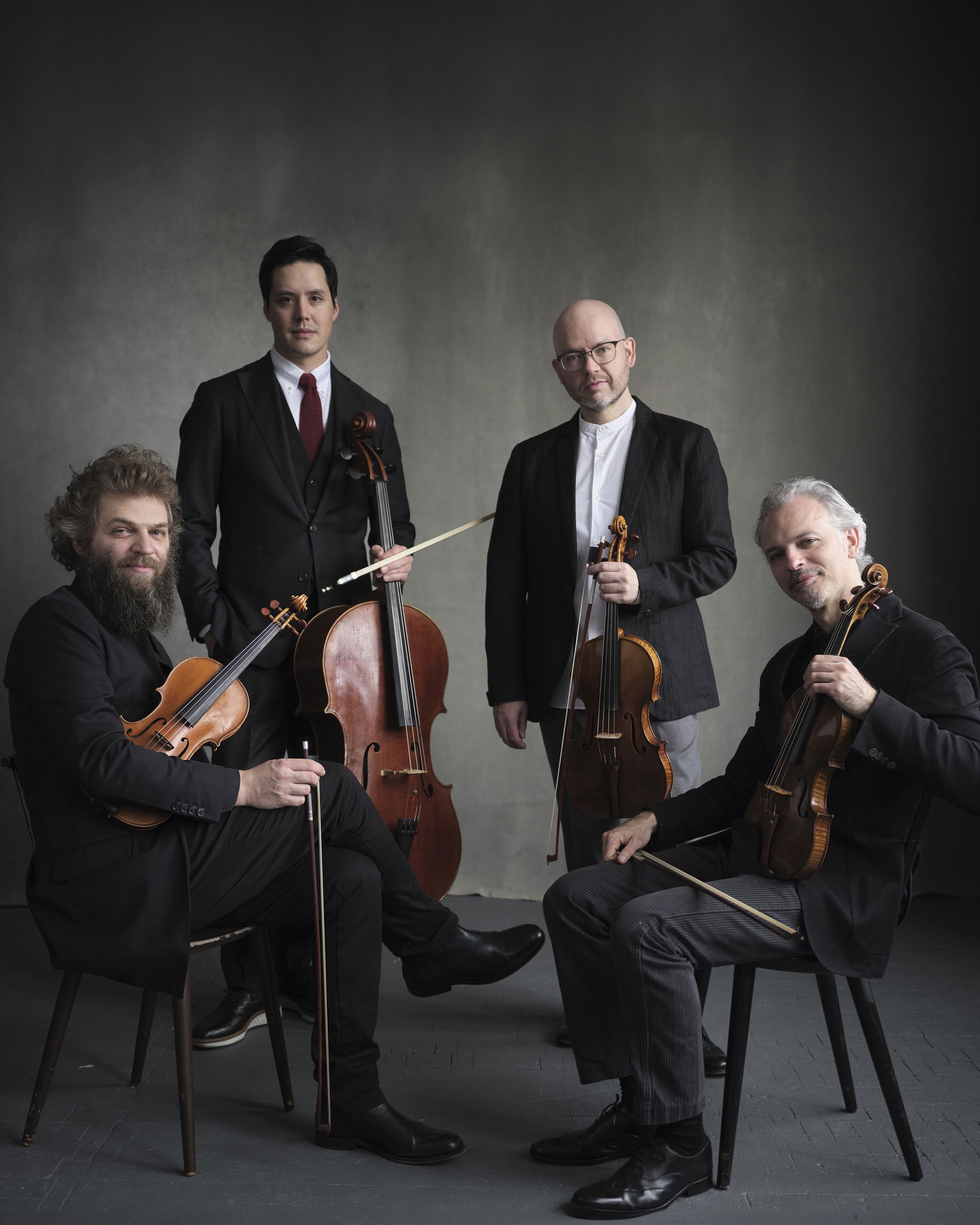
Rather than ‘recreating’ the string quartet in any particular way, Nicholas says they prefer to see themselves as ‘squarely part of the ongoing, evolving string quartet tradition,’ and within that definition they honour the people who have contributed to its evolution over hundreds of years. ‘I think we may have had a role to play in pushing that tradition forward into the future, but the medium of the string quartet itself has always pushed boundaries. From Haydn to Beethoven to Schoenberg to the incredibly wide range of music being created today, the quartet is an endlessly inventive sandbox of invention. I think what we’ve always strived to do is to invite a great diversity of offerings under our tent.’
Brooklyn Rider proudly sites the twentieth-century circle of artists known as Der Blaue Reiter (The Blue Rider) as their namesake: formed in Munich in 1911, its members included Wassily Kandinsky, Franz Marc and Arnold Schoenberg. ‘One thing we find inspiring about Der Blaue Reiter is the very wide lens,’ Nicholas says. ‘Rejecting the formal academic tradition as the singular arbiter of taste, they acknowledged a much wider world. There was something beautifully rebellious about that attitude, though I also don’t think they were advocating tearing down the walls of the academy or museum. They also operated with a strong sense of mission, and sought to create a strong collective identity while also celebrating the individuality of its members. All of this seemed to relate directly to the enterprise of making a string quartet – but we put it in our time and space by making it Brooklyn Rider (even though now only one of us still lives in Brooklyn!).’
Brooklyn Rider first got to know UKARIA’s audience in February 2024 as part of their inaugural visit to Australia, and Nicholas says this has informed their curation of Chamberfest. ‘We can’t make too much assumption about the wider Australian cultural landscape, but as for UKARIA, we already know that it is an audience that is incredibly engaged as listeners, and willing to go on musical journeys. Offering both familiar and unfamiliar elements feels like a good way to create a useful bridge.
The Chamberfest programs also posit questions around ideas – democracy and citizenship, music’s healing properties, confronting boundaries, creating shared spaces for collaboration. We know that the UKARIA audience is incredibly willing to go along for the ride, and this provided us with lots of inspiration as we went about creating this year’s Chamberfest.’
Featured throughout the program are several works by Australian composers, including Liza Lim, Kate Moore and Padma Newsome. ‘We are delighted to present music by Australian composers! But this wasn’t a stretch for us to include; we have had a longstanding relationship with this music, and programming these works feels incredibly organic to what we are doing.’
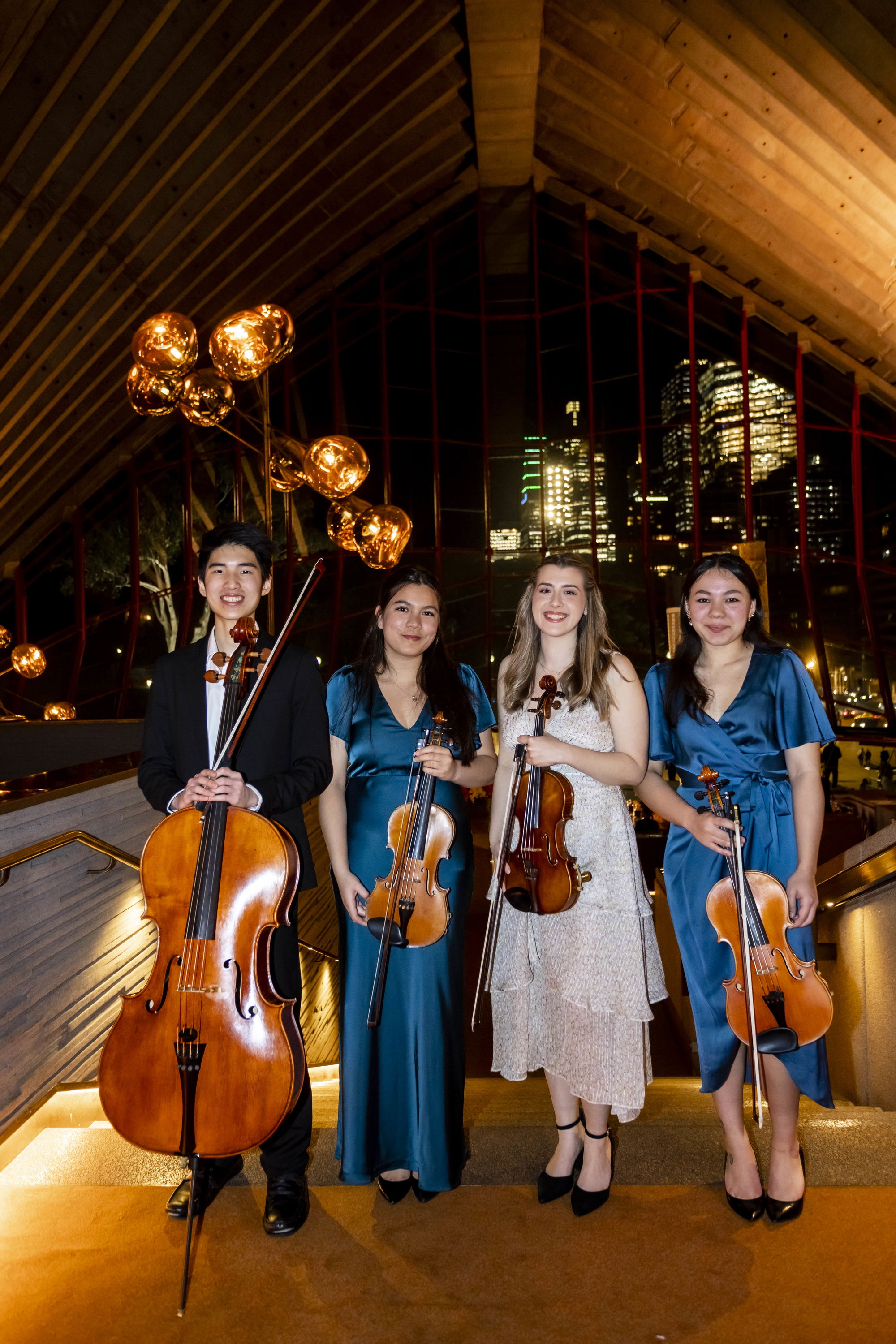
Chamberfest will culminate with Concert Five, Ever Yours, which features a collaboration with a string quintet from the Australian National Academy of Music (ANAM). To finish our conversation, Nicholas provides a taste of the generosity and encouragement that he, Johnny, Colin and Michael would like to share with these next-generation artists:
‘I think our primary job will be to collaborate as fellow artists. We will be sharing the stage and the music together, and in order to do so, a feeling of a levelled stage has to be present. And we will be curious to learn about their perspectives and experiences, so we will have a lot to learn.
On the other hand, our hope is that they walk away from the experience with a sense of growing curiosity and perhaps a sense of renewed agency. Playing string quartets is already a job with incredible odds against it – it’s musically hard, it’s time consuming, it’s challenging on a human to human level. Playing music in a troubling world is yet another impediment. Perhaps a young person might wonder – what can I do, what difference can I make? But I think the hope for this collaboration might be that it all feels just a little more possible…’

